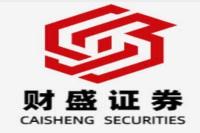Renault's Electrifying Expansion in China: A Deep Dive into the EV Revolution
Meta Description: Renault's ambitious expansion of its Chinese R&D center signals a major push into the burgeoning Chinese electric vehicle market. This in-depth analysis explores the strategic implications, technological advancements, and potential challenges facing Renault's ambitious EV strategy in China. #Renault #China #ElectricVehicles #EV #AutomotiveIndustry #R&D #GlobalExpansion
Imagine this: a bustling metropolis, a vibrant tapestry of innovation, and at its heart, a global automotive giant making a bold, electrifying move. That's Renault in China, not just dipping a toe into the water, but diving headfirst into the exhilarating world of electric vehicles (EVs). Their recent announcement to significantly expand their research and development (R&D) center isn't just a press release; it's a declaration of intent, a bold stroke in the ongoing chess match for EV dominance. This isn't about incremental growth; it's about seizing a pivotal moment in automotive history. The Chinese EV market is a juggernaut, a roaring engine of innovation and consumer demand, and Renault, with its 200-strong team already on the ground, is positioning itself for a front-row seat. But what does this expansion really mean? What are the strategic advantages? What are the potential pitfalls? And, most importantly, what can we expect from this ambitious endeavor? This isn't just another story about a company expanding overseas; this is a story about a global brand betting big on the future of mobility, and it's a story we need to understand. Prepare to be captivated by the intricate details, the strategic nuances, and the sheer audacity of Renault's electrifying journey in China. This isn't just about cars; it's about the future of transportation, the future of technology, and the future of global competition. Get ready to unpack it all, one electric charge at a time!
Renault's China EV Strategy: A Game Changer?
Renault's decision to significantly expand its Chinese R&D center is a strategic masterstroke, reflecting a deep understanding of the burgeoning EV market in China. This isn't simply about producing vehicles for the Chinese market; it's about leveraging China's technological prowess and manufacturing capabilities to accelerate Renault's global EV ambitions. This expansion speaks volumes about Renault’s commitment to being a key player in the global electric vehicle race. They're not just building cars; they're building a future.
The current 200-strong team is a testament to their initial investment. However, the planned expansion indicates a far more significant commitment, implying a substantial increase in research personnel, engineers, designers, and support staff. This upscaling isn't just about numbers; it's about creating a critical mass of talent capable of driving innovation at an unprecedented pace. Think of it like this: a small, well-trained army is effective, but a large, highly specialized force is unstoppable.
The Power of Proximity: Why China?
China's dominance in the EV sector isn't a secret. It's the world's largest EV market, boasting a massive consumer base and a rapidly growing infrastructure supporting electric mobility. By expanding their R&D center in China, Renault gains access to:
- Local Expertise: China's rapidly growing talent pool in EV technology is invaluable. From battery technology to charging infrastructure to software development, China is at the forefront of innovation.
- Supply Chains: China boasts a robust and efficient supply chain for EV components, allowing for streamlined manufacturing and cost optimization. This is crucial for competitiveness in the global market.
- Market Insights: Being on the ground allows Renault to directly observe and respond to the ever-evolving needs and preferences of Chinese consumers. This real-time feedback is priceless.
- Government Support: The Chinese government actively promotes the development and adoption of EVs through various incentives and policies. This supportive regulatory environment provides a significant advantage.
Technological Leap Forward: Innovation Hub
The expanded R&D center will act as a crucial hub for technological innovation. Renault will likely focus on:
- Battery Technology: Developing next-generation battery technology is paramount to improving EV range, charging speed, and overall performance. China's advanced battery production capabilities offer significant advantages.
- Autonomous Driving: Integrating advanced autonomous driving features is a key differentiator in the increasingly competitive EV market. China's progress in this field offers valuable learning opportunities.
- Connectivity and Software: Developing sophisticated connected car features and user-friendly software interfaces is crucial for enhancing the overall driving experience.
Challenges and Opportunities: Navigating the Complex Landscape
Despite the significant opportunities, Renault faces several key challenges:
- Competition: The Chinese EV market is fiercely competitive, with both established domestic players and international giants vying for market share.
- Regulatory Hurdles: Navigating the complexities of the Chinese regulatory landscape can be challenging. Understanding and complying with local regulations is paramount.
- Supply Chain Risks: Global supply chain disruptions can impact production and profitability. Mitigating these risks is crucial.
The expansion itself presents a significant opportunity to build deeper relationships with local partners, suppliers, and research institutions. This collaborative approach can accelerate innovation and enhance market penetration.
Renault's Commitment to Sustainability: Beyond the Bottom Line
Renault's expansion is not solely driven by profit; it is also a strong statement about their dedication to environmental sustainability. China's commitment to reducing carbon emissions further enhances the strategic appeal of this move. By investing heavily in the EV sector in China, Renault demonstrates its commitment to a greener future for the automotive industry.
Frequently Asked Questions (FAQs)
Q1: What specific technologies is Renault likely to focus on in its expanded Chinese R&D center?
A1: The focus will likely be on battery technology (including solid-state batteries), autonomous driving systems, and advanced connectivity features, all areas where China is making significant strides. Expect innovations in fast-charging technologies and improved battery management systems as well.
Q2: How will Renault compete with established Chinese EV manufacturers?
A2: Renault will undoubtedly leverage its global expertise in automotive engineering and design, coupled with the advantages of local manufacturing and a deep understanding of the Chinese market gained through its expanded R&D center. Strategic partnerships with Chinese companies are also a likely tactic.
Q3: What are the potential risks associated with Renault's expansion in China?
A3: Risks include intense competition, regulatory uncertainties, supply chain disruptions, and potential geopolitical factors. Effective risk management strategies are essential to mitigate these challenges.
Q4: How will this expansion affect Renault's global EV strategy?
A4: This expansion significantly accelerates Renault's global EV ambitions. The technological advancements and insights gained in China will be applied to its global product line-up, enhancing competitiveness worldwide.
Q5: Will this impact Renault's employment worldwide?
A5: While the expansion creates jobs in China, it's expected to indirectly boost employment in other Renault facilities through increased production and global supply chain interactions. The overall impact is difficult to predict without more detailed information on staffing plans.
Q6: What is the anticipated timeline for the expansion and its impact on the market?
A6: A definitive timeline isn't publicly available yet. However, given the scale of the expansion, we can expect to see significant progress within the next few years, with new models and technologies emerging from the center and influencing Renault's global EV offerings.
Conclusion: A Bold Bet on the Future
Renault's ambitious expansion in China is more than just a business decision; it's a bold bet on the future of electric mobility. By embracing the opportunities presented by the Chinese market, Renault is positioning itself for leadership in the global EV revolution. While challenges undoubtedly exist, the potential rewards—technological advancements, market dominance, and a significant contribution to a more sustainable future—are substantial. This isn't just about cars; it's about shaping the future of transportation, and Renault is clearly driving the charge.



